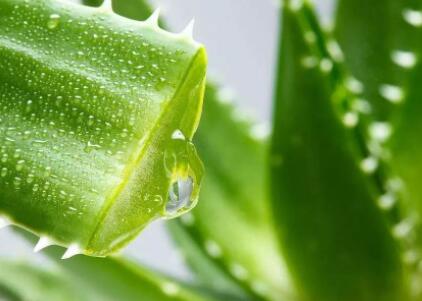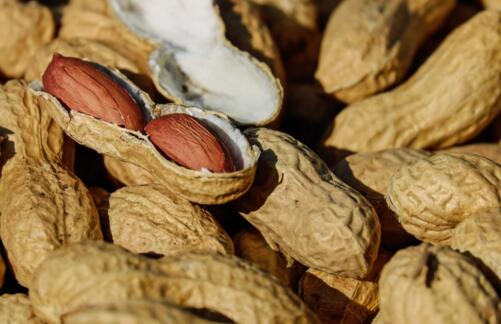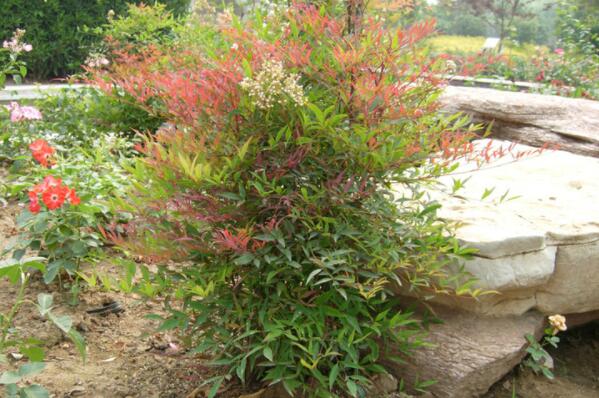What are the potted plants suitable for growing indoors? How do you raise it?
In recent years, with the improvement of living standards, more and more friends like to raise some potted plants at home, such as aloe, green apple, gentleman orchid, rubber tree and so on, which not only greens the home environment, but also has a very good effect of purifying air. Comparable to air purifier. So, what are the potted plants suitable for growing indoors? How do you raise it? Here are some potted plants suitable for growing indoors:

Aloe vera
A pot of aloe is equivalent to nine biological air cleaners. Potted aloe is known as an air purification expert. A pot of aloe is equal to nine biological air cleaners, which can absorb harmful substances such as formaldehyde, carbon dioxide, sulfur dioxide and carbon monoxide. Especially for formaldehyde absorption is very strong. Under the condition of 4 hours of light, a pot of aloe can eliminate 90% of formaldehyde in one square meter of air, kill harmful microorganisms in the air, and absorb dust, which plays an important role in purifying the indoor environment. When the indoor harmful air is too high, the leaves of aloe will appear spots, this is the signal for help, as long as a few more pots of aloe are added indoors, the indoor air quality will tend to normal again. In spring, when the temperature is 15-25 degrees Celsius, you can appropriately increase the watering times, generally watering once every 5-7 days, and take the principle of not drying and watering thoroughly, so that the basin soil can be seen dry and wet. In summer, the temperature is high and the evaporation is large, so it needs to be watered every 2-3 days. In addition, aloe leaves can be sprayed with water every morning and evening, which can keep aloe leaves green and increase ornamental. Potted aloe in summer should also pay attention to less exposure to the hot sun, so as to reduce the loss of water in potted soil and plants. The watering of aloe in autumn is basically similar to that in spring. sometimes it is better to water less and make up watering after the basin soil is short of water, rather than make the basin soil in a state of over-saturation for a long time, resulting in insufficient oxygen in the roots of potted aloe, difficulty in breathing and death of aloe plants. It should be watered as little as possible when the room temperature is low in winter. Generally, it can be watered once every 15-20 days. If necessary, foliar spraying can be used to keep the basin soil properly dry, which is beneficial to aloe plants to survive the winter safely.
Green pineapple
Green pineapple can improve air quality and eliminate harmful substances. Green pineapple has strong vitality and strong ability to absorb harmful substances, which can help rooms that do not often open windows and ventilation to improve air quality. Green pineapple can also eliminate formaldehyde and other harmful substances, its function is no less than ivy, hanging orchid. The amount of watering in autumn and winter should be strictly controlled according to room temperature. Before heating, the temperature is low and the soil evaporation of the plant is slow. In order to reduce watering, the amount of water should be controlled between the original 1pm 4-1max 2. Even after heating, watering should not be too frequent, watering should be less watered into the basin, and should be oozed by brown silk. In addition, water should be sprayed to the aerial root growth of the brown column to reduce the insufficient water absorption of the root caused by rapid evaporation. Winter water to dry after a day of water is better, the water is too cold easy to damage the roots.
Third, the gentleman orchid
Magnolia is a freshener that releases oxygen and absorbs smoke. An adult orchid can absorb 1 liter of air in a day and night, release 80% oxygen, and photosynthesis can occur in extremely weak light. It doesn't emit carbon dioxide at night. In a room of more than ten square meters, two or three pots of magnolia can absorb the indoor smoke. Especially in the cold winter in the north, because the doors and windows are closed and the indoor air is not ventilated, the gentleman orchid will play a good role in regulating the air and keeping the indoor air fresh. Cymbidium has a more developed fleshy root, in which there is a certain amount of water, so this kind of flower is more drought-tolerant. However, drought-tolerant flowers should not be seriously short of water, especially in the case of high temperature in summer and dry air, do not forget to water in time, otherwise, the roots and leaves of flowers will be damaged, resulting in the germination of new leaves, and the original leaves are estimated to be scorched, not only affect flowering, but even cause plant death. However, too much watering will rot the roots. Therefore, it is necessary to have a good grasp and always pay attention to the dry and wet condition of the basin soil. if it is semi-dry, it should be watered once, but the amount of water should not be much. It is just right to keep the basin soil moist and not damp.
4. Rubber tree
Rubber tree is a generalist in eliminating harmful substances, and rubber tree is a generalist in eliminating harmful plants. It is resistant to harmful gases such as carbon monoxide, carbon dioxide and hydrogen fluoride in the air. Rubber tree can also eliminate the pollution of respirable particles and effectively detain indoor dust. The temperature of rubber tree is the best at 20-25 degrees, even above 30 degrees can grow well, but in winter if the temperature is too low, rubber trees will produce a large number of fallen leaves, cold tolerance is very poor, the northern part of our country needs to spend the winter in the greenhouse. High temperature in summer, rubber trees grow faster, should be fat and water, but to avoid stagnant water in the basin. Gradually reduce watering after entering autumn, promote plant growth and enrichment, which is conducive to its overwintering. The existence of fertilizer, like calcium supplement, can enhance its "health". Fertilization is also one of the key points in rubber tree breeding methods, which can reduce the occurrence of markings and make the leaves bright. Just use nitrogen fertilizer, and remember to stop applying fertilizer in winter.
Time: 2019-04-09 Click:
- Prev

Can peanuts be seeded in shells? How? What's in it for you? What kind of fertilizer is high yield?
Peanut is a crop planted by farmers 'friends every year. It is not only very good for planting, but also has many uses and rich nutritional value. Peanuts usually are shelled and planted. Today, Xiaobian wants to talk about planting peanuts without shelling. So, can peanuts be seeded with shells? How? what are the benefits
- Next

Can the evergreen shrub Phyllostachys pubescens be fed in the north? How much is the seedling price? What are the planting methods? Attached
Southern bamboo alias Nantian Zhu, red quat son, candle son, red wolfberry, diamond yellow, Tianzhu, orchid bamboo, because of its superior and elegant shape, it is often used to make bonsai or potted plants to decorate windowsill, hall, meeting hall and so on. Can southern bamboos be fed in the north? How much is the seedling price? What are the planting methods?
Related
- Fuxing push coffee new agricultural production and marketing class: lack of small-scale processing plants
- Jujube rice field leisure farm deep ploughing Yilan for five years to create a space for organic food and play
- Nongyu Farm-A trial of organic papaya for brave women with advanced technology
- Four points for attention in the prevention and control of diseases and insect pests of edible fungi
- How to add nutrient solution to Edible Fungi
- Is there any good way to control edible fungus mites?
- Open Inoculation Technology of Edible Fungi
- Is there any clever way to use fertilizer for edible fungus in winter?
- What agents are used to kill the pathogens of edible fungi in the mushroom shed?
- Rapid drying of Edible Fungi

